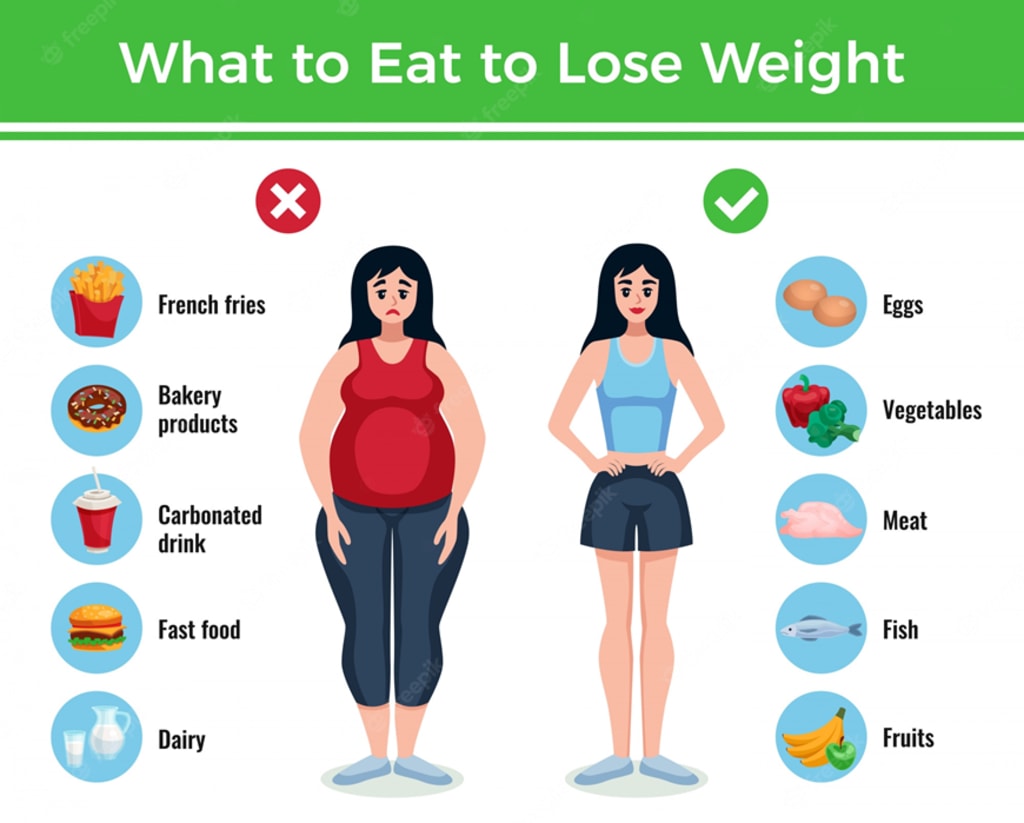Diet Plans

Diet Plans
The Benefits of Following a Balanced Diet Plan
Are you tired of feeling sluggish and unhealthy? Do you want to improve your overall well-being and have more energy throughout the day? If so, it might be time to consider following a balanced diet plan. While it may seem daunting at first, the benefits of adopting a balanced diet plan are numerous and can have a significant impact on your health and lifestyle.
One of the primary benefits of following a balanced diet plan is weight management. Many people struggle with maintaining a healthy weight, and a balanced diet can help with that. By incorporating a variety of nutritious foods into your meals, you can ensure that you are getting all the essential nutrients your body needs while also keeping your calorie intake in check. This can lead to gradual and sustainable weight loss or maintenance, depending on your goals.
In addition to weight management, a balanced diet plan can also improve your overall health. When you eat a variety of fruits, vegetables, whole grains, lean proteins, and healthy fats, you are providing your body with the necessary nutrients to function optimally. These nutrients can boost your immune system, improve your digestion, and reduce the risk of chronic diseases such as heart disease, diabetes, and certain types of cancer.
Furthermore, following a balanced diet plan can enhance your mental well-being. Research has shown that certain nutrients, such as omega-3 fatty acids found in fish and nuts, can have a positive impact on brain health and reduce the risk of depression and anxiety. By incorporating these foods into your diet, you can support your mental health and improve your overall mood.
Another benefit of following a balanced diet plan is increased energy levels. When you fuel your body with nutritious foods, you are providing it with the necessary fuel to function efficiently. This can result in higher energy levels throughout the day, allowing you to be more productive and engaged in your daily activities. Say goodbye to that mid-afternoon slump and hello to sustained energy!
Additionally, a balanced diet plan can improve your sleep quality. Certain foods, such as those rich in magnesium and tryptophan, can promote better sleep by regulating your sleep-wake cycle and increasing the production of serotonin, a hormone that helps regulate sleep. By incorporating these foods into your diet, you can enjoy a more restful night’s sleep and wake up feeling refreshed and rejuvenated.
Lastly, following a balanced diet plan can also save you money. While it may seem counterintuitive, eating healthy doesn’t have to break the bank. By planning your meals in advance and buying ingredients in bulk, you can save money on groceries. Additionally, by reducing your intake of processed and unhealthy foods, you can save on medical expenses in the long run.
In conclusion, following a balanced diet plan can have numerous benefits for your overall health and well-being. From weight management to improved mental health, increased energy levels to better sleep quality, the advantages are undeniable. So why not give it a try? Start by incorporating more fruits, vegetables, whole grains, lean proteins, and healthy fats into your meals, and watch as your health and lifestyle transform for the better. Remember, it’s all about finding the right balance and making sustainable choices that work for you.
How to Choose the Right Diet Plan for Your Health Goals
Are you looking to improve your health and achieve your fitness goals? One of the most important factors in achieving these goals is following a healthy diet plan. With so many diet plans out there, it can be overwhelming to choose the right one for your specific needs. In this article, we will discuss some tips on how to choose the right diet plan for your health goals.
First and foremost, it’s important to understand that there is no one-size-fits-all diet plan. Each person is unique and has different dietary needs. What works for one person may not work for another. Therefore, it’s crucial to consider your own health goals and preferences when choosing a diet plan.
One of the first things to consider is your overall health. Are you looking to lose weight, gain muscle, or simply maintain a healthy lifestyle? Understanding your specific health goals will help you narrow down the options and find a diet plan that aligns with your objectives.
Next, consider your dietary preferences. Do you have any food allergies or intolerances? Are you a vegetarian or vegan? These factors will play a significant role in determining which diet plan is right for you. For example, if you’re a vegetarian, you may want to consider a plant-based diet plan that focuses on fruits, vegetables, and legumes.
Another important factor to consider is your lifestyle. Are you a busy professional with limited time for meal preparation? Or do you enjoy spending time in the kitchen and experimenting with new recipes? If you have a busy schedule, you may want to choose a diet plan that offers pre-packaged meals or quick and easy recipes. On the other hand, if you enjoy cooking, you may prefer a diet plan that allows for more flexibility and creativity in the kitchen.
It’s also essential to consider the long-term sustainability of the diet plan. Many people fall into the trap of following a fad diet that promises quick results but is difficult to maintain in the long run. Instead, look for a diet plan that promotes a balanced and sustainable approach to eating. This will ensure that you can stick to the plan and continue to see results over time.
Additionally, it’s important to consult with a healthcare professional or registered dietitian before starting any new diet plan. They can provide personalized advice based on your specific health needs and help you make an informed decision.
In conclusion, choosing the right diet plan for your health goals requires careful consideration of your overall health, dietary preferences, lifestyle, and long-term sustainability. Remember that there is no one-size-fits-all approach, and what works for one person may not work for another. By taking the time to understand your specific needs and consulting with a healthcare professional, you can find a diet plan that will help you achieve your health goals and maintain a healthy lifestyle. So, take the first step towards a healthier you by choosing the right diet plan today!
Common Mistakes to Avoid When Starting a Diet Plan
Starting a diet plan can be both exciting and challenging. You may have set some goals for yourself, such as losing weight or improving your overall health. However, it’s important to be aware of some common mistakes that people often make when embarking on a diet plan. By avoiding these pitfalls, you can increase your chances of success and make the most out of your journey towards a healthier lifestyle.
One of the most common mistakes people make when starting a diet plan is setting unrealistic expectations. It’s easy to get caught up in the excitement and want to see immediate results. However, it’s important to remember that sustainable weight loss takes time. Crash diets or extreme restrictions may lead to quick initial weight loss, but they are often difficult to maintain in the long run. Instead, focus on making gradual changes to your eating habits and lifestyle that you can sustain over time.
Another mistake to avoid is relying solely on willpower. Many people believe that they just need to have enough self-control to stick to their diet plan. While willpower is important, it’s not the only factor that determines success. It’s essential to create an environment that supports your goals. Stock your pantry with healthy foods, plan your meals in advance, and find healthy alternatives to your favorite indulgences. By making these changes, you’ll be setting yourself up for success and making it easier to stick to your diet plan.
A common pitfall that many people fall into is focusing solely on the number on the scale. While weight loss may be one of your goals, it’s important to remember that it’s not the only measure of success. Instead of obsessing over the scale, pay attention to how you feel. Are you sleeping better? Do you have more energy? Are your clothes fitting better? These non-scale victories can be just as important and motivating as the number on the scale.
Another mistake to avoid is neglecting the importance of portion control. Even if you’re eating healthy foods, consuming too much of them can hinder your progress. It’s important to be mindful of your portion sizes and listen to your body’s hunger and fullness cues. Consider using smaller plates and bowls to help control your portions, and take the time to savor and enjoy your meals. By practicing portion control, you can still enjoy the foods you love while staying on track with your diet plan.
Lastly, don’t forget to stay hydrated. Drinking enough water is essential for overall health and can also support your weight loss efforts. Sometimes, we mistake thirst for hunger and end up eating when our bodies are actually just in need of hydration. Aim to drink at least eight glasses of water a day, and consider carrying a water bottle with you to stay hydrated throughout the day.
In conclusion, starting a diet plan can be a positive step towards improving your health and achieving your goals. By avoiding common mistakes such as setting unrealistic expectations, relying solely on willpower, obsessing over the scale, neglecting portion control, and forgetting to stay hydrated, you can increase your chances of success. Remember, it’s not about perfection, but rather making sustainable changes that you can maintain in the long run. So, be kind to yourself, stay focused, and enjoy the journey towards a healthier you.









